The World Tea Academy is an online resource offering comprehensive basic and advanced training for tea professionals and enthusiasts. The program has taught classes to more than 1,250 students from 64 countries. Director Lisa Boalt Richardson joins us for a conversation about the resilience and relevance of the Academy on its 10th anniversary.
- Caption: Lisa Boalt Richardson was named director of the World Tea Academy in 2019.
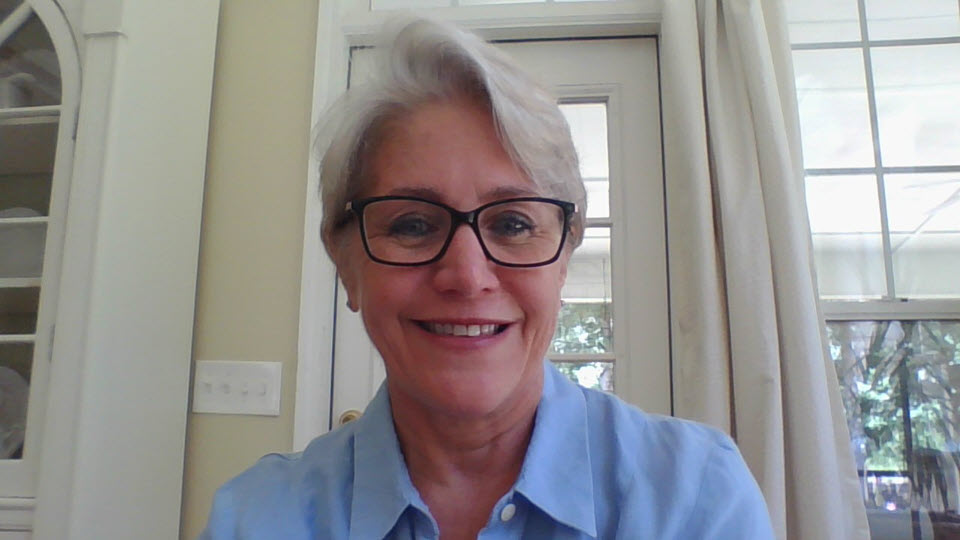
World Tea Academy is as Relevant Now as When it was Founded
By Dan Bolton
Educator Lisa Boalt Richardson first began teaching tea professionals the basics of cultivation and processing and how to cup tea as an instructor with the Specialty Tea Institute. She later served as an STI board member. In 2015, Donna Feldman, the founding director of the World Tea Academy, recruited Lisa as a substitute teacher for the growing online program. Lisa advanced to assistant director in 2018 and succeeded Feldman when Donna left the post in 2019. In the decade since its founding, instructors have taught 5,200 classes. The Academy has awarded nearly 400 certifications since graduating its first class of 36 students in July 2013. Six certifications are now offered, including Certified Tea Sommelier, Certified Tea Specialist, Certified Tea Professional, Certified Tea Health Expert, Certified Tea Blender, and Certified Tea Aroma Expert.
Today the Academy teaches four basic and four advanced classes monthly (22 classes in all) and enrolls between 150 and 230 students a year.
The cost to become a Certified Tea Specialist is $2,173, which includes six three-week basic courses. Students must also complete one advanced course. To experience tea in their homes and offices, students purchase tea and supplies, bringing the total expense to about $2,525.
Dan Bolton: When the academy was founded a decade ago, what was the tea industry’s most pressing educational need? Who brought the spark to the fire?
Lisa Boalt Richardson: George Jage, who founded World Tea Media, saw the need to modernize tea education. I think he was well ahead of his time. Online is everywhere now — here we are, recording an online podcast. But back then, it wasn’t that common. So, he had the vision to do this.
He hosted Specialty Tea Institute classes at World Tea Expo and thought, “There’s all this demand. Why can’t we teach it online?” So, he chose Donna Feldman to lead the charge, but George was highly involved in the process in the early beginning.
He helped Donna with guidelines like deciding that classes would be three weeks long. The need was to educate more people without having them travel and meet in person. They wanted to get more people educated more easily, but still with a solid tea education program.
STI was around, but I don’t think the Academy was started to compete with the Specialty Tea Institute. I think the founders saw that people learn differently. Some people still don’t enjoy online classes. It’s just a different learning approach.
So, if you need in-person classes, we always say World Tea Academy isn’t your thing. But if you can, I think many more people are adept at it because learning online’s just more common now. Back then, ten years ago, it wasn’t. It was a platform for educating more people and is still a highly qualified program with three weeks segments.
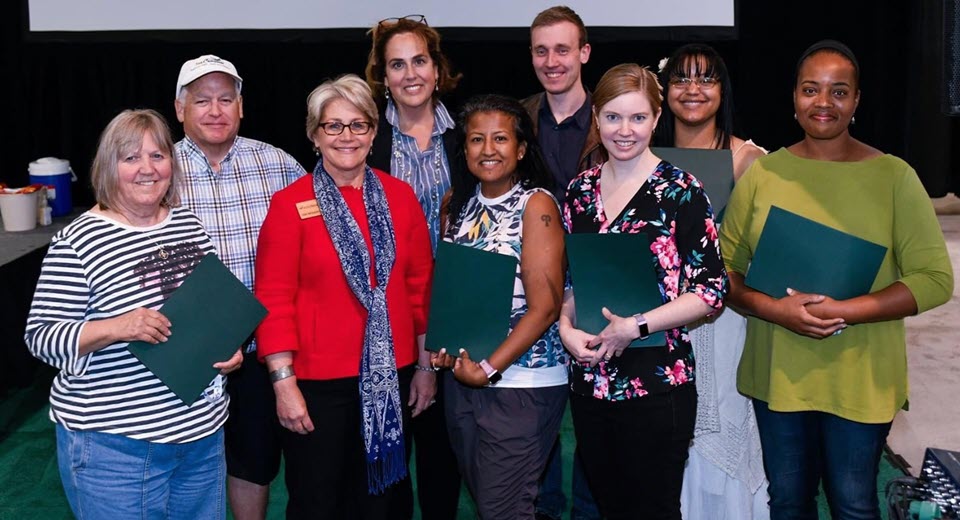
Dan: George shaped the program, but Donna Feldman grabbed the reins, writing the entire curriculum. She was also a well-organized and able administrator like yourself. Will you articulate her vision as a gifted educator with a breadth of experience in the tea business?
Lisa: I talked with Donna about this. And she said her father was an educator. She said putting together the classes just came naturally.
She decided she would write classes ‘for what, when I started out in tea, I wanted to know.’ And I loved that because that was just so great,
She was in tea for a long time and helped run a tea cafe with Brian Keating. And so, it was the right information to disseminate what was important to know about tea.
I’m a very organized person. Having it succinctly put together — you take this many classes, you get this certification — it’s a very organized program. And that way, you’re not trying to sort out, ‘What do I need?’
She’d already written the curriculum for STI, but it needed to be in a different format and taught in a different way. Our core classes, she wrote all of them, were built on basics, you know, core two is tea processing methods after making the tea, and it just evolved.
She’s a very brilliant woman; I’m so honored that I had a chance to work with her.
Dan: How did the academy curriculum differ from STI training?
Lisa: I taught at STI and served on the board. I have a decent perspective of the difference. Because STI was on location, you had to jam-pack the day full. And it was all day for a class, sometimes two days. As a student, I remember, ‘Wow,’ this is overwhelming and exhausting.
World Tea Academy is self-paced. You read the materials, watch the videos, and have a live instructor, not necessarily in the class, but always there to answer your questions, grade your assignments, and grade your test.
People can still do their work, and they can do their classes on the weekends. And it opened up an international market, which surprised Donna and George the most.
They thought it would be North America, the US, and Canada. It really did open it up to students in 64 countries to date.
I think those are the main differences. It’s online, and it’s broken out into many segments. You can log on when you want to read, watch videos, and do your assignments. They have due dates, but you can do it anytime within the week to complete your assignment.
Dan: The advanced classes teach blending and some aspects of business, such as health and enhancing aroma skills so that you can flavor tea. The advanced curriculum seems more focused on generating revenue, getting a job, and creating business opportunities.
Lisa: The core classes are, you know, really the basics, are what we still focus on. That is important because so many people think, ‘I’m going to start a tea business, but I don’t know anything about tea,’ they get lost in the weeds. They don’t understand how to order from wholesalers. They don’t know anything.
That changes once you start getting into the advanced classes. The blending classes are interesting. It is so popular. We’ve had 230 students take Advanced 11 (Blending-Flavoring-Scenting). It is remarkable because everybody’s like, ‘I want to have my own tea blend. I want to be a blender,’ but they don’t understand what that means. It’s not just like I’m going to whip up a recipe. There’s a lot that goes into it. It’s very much an art and a science. The Advanced 11 course was already created, that was the first blending class, and I was working on the advanced classes with Donna. Scott Svihula and Brian Keating were a part of it.
We got very advanced people, and there are formulas and calculations in those classes that will help people figure out difficult aspects. It’s not just about weight; it’s density. You can’t just put a heavy ingredient in with a light tea, or it will all fall apart. There are things to think about that occur during shipping. There are things to think about regarding price. You know, you might have this great tea, and it tastes fabulous, but you’ve priced yourself out of the market. You learn to ask why you need to create a new tea. Is there something else already on the market? There’s a whole marketing analysis to it to look to see what already is on the market. What are you creating that’s different and special?
- There are four advanced blending courses, ADV11, ADV12 (Formulating Delicious Blends) ADV13 (Art of Blending 1 and ADV14 Art of Blending 2)
And there are the advanced organoleptic classes where students really begin understanding what’s happening. There’s a lot of science in the chemistry of tea and the biology of tasting tea. What am I tasting? And how am I understanding it and understanding what’s going on in your brain and your body? While that’s happening. So that helps people develop this organoleptically. In the beginning, many students didn’t know how to cup tea, and they wanted the teacher’s version of what I cupped.
We’re all created differently. From the beginning, we have had a stance that we do not do that. Because what I taste isn’t what you’re going to taste. And what you taste needs to be important to you. You need to have a memory bank of what you know what things taste like. We encourage it. And it’s very hard initially because people don’t pay attention to what they’re eating and drinking and what it tastes like. And so we’re telling them to pay attention, go to the farmers market, and go to different tastings. Go to olive oil tastings, and salt tastings, and Scotch tastings, and wine tastings, visit the farmer’s market, and pick up all different kinds of fruits; you don’t even have to know what they are, just taste them. And get that in your memory bank. So that when you are cupping; when you are deciding how to blend all these herbs, botanicals, teas, everything, you have a name for it. What I call it isn’t important. It’s what you name it, and then it means something to you.
Dan: We discussed how the Academy pioneered online education for professionals previously limited to training that occurs in tea rooms. What are the most pressing educational needs facing the tea industry today?
Lisa: Well, I don’t know if they’ve changed that much. Tea is a 5000-year-old beverage. It’s got a long history. They are creating new blends and flavors, and there are new marketing aspects and trends, but understanding the basics is important; what it is, how it’s grown, where it’s grown, what it tastes like, and how to cup. People in today’s fast-paced society don’t want to take time to learn — they want to know.
Tea is experiential. You can study tea all you want, but having the experience of cupping teas, tasting teas, understanding flavor profiles, understanding your market, and your consumer is really important to be a professional in the business.
It’s embarrassing for some of our students to say, my customers asked me this, and I couldn’t answer.
We get people from large and global tea companies to take the training they send their employees through. We get people from flavor companies, and we get entrepreneurs. We get some enthusiasts who want to know about tea to be better buyers of tea and experience it at a deeper level.
We create courses when we feel the need. And we decided that the breadth and depth of six core and 16 advanced courses are important. I don’t know what else we can add, but we will create or create new classes if it comes up.
We want to keep the curriculum up-to-date. We regularly updated our classes, we updated assignments, and we just added in some studies.
Dan: You mentioned a lot of interest in the health aspects of tea.
Lisa: People aren’t critically reading tea studies. And so when we updated our advanced Tea and Health class, I thought it was important to train students to read tea studies. We ask them to consider how many participants were there. ‘Did you look at that? Is that important?’
Another very important thing is who sponsored it. Sometimes those sponsors do so to get the outcome they want. Was it or wasn’t it an objective study? Some things to think about are why there are fewer studies on black tea. Why are there studies on green tea? So I think we added that recently in the last two years to our advanced 10 to help students read through a study. We give them two studies with contradictory findings and ask, ‘What did you think when you read through it? And how and what do you decipher from it? Why are there different outcomes?’
I think that was a good thing to add because, you know, you’re reading all these studies all the time on tea, and it’s important to understand how to read a study.
Tea is a niche market. Here in the US, in North America, coffee is king. But tea has its place. People are finding even if they have a coffee shop; they need to offer tea. We have coffee shop owners and staff at coffee chains taking our classes. They see there is a need to understand it. Will a coffee shop have more tea than they have coffee? No. But they can meet demand from customers who don’t like coffee or when it’s later in the day, and coffee drinkers want something different.
There’s always a market for good quality tea education. It’s just a matter of marketing helping it grow. Our main source of students is word-of-mouth and Google searches. Enrollment has stayed consistent over the years.
Will it be a multibillion-dollar business? No, I don’t think so. But I think enrollment will be consistent. If supported.
Will this Program Help Secure a Job?
As one of the pioneering heirs of the WTA success story and being rewarded with the title “Tea Professional” in its inaugural course year, I can vouch for the generous wealth of knowledge contributed through its program. In holding the highest prestige of being a certified Sommelier of the “Tea Association of Canada,” which I still and will continue to be an avid advocate, I indeed consider myself privileged at that time to enroll in the inaugural professional program of World Tea Academy and to be exposed to its intense and extensive course content, to which itself is an endorsement. The knowledge gained through the WTA program has propelled me beyond limits in executing functions and tasks of responsibilities and, to many others, in fostering initiative. Job opportunities? Over the years, some of the frequent questions I’ve encountered are, “Can this program help secure a post”?, and “Will I be hired if I only have this on my CV”? And many similar anxieties. Absolutely! The knowledge gained at different levels of course curriculum is undeniable to the industry. It means so much to give back through a variety of channels and to make yourself available, useful, and an ambassador for the product. In conclusion, it is with sincere gratitude I wish the Academy many more landmarks of continued success.
Ravi Pillai Dpm. (in Plantation Mgt)
Director, Quality & Development |
Certified TAC Tea Sommelier® | WTA Tea ProfessionalTM
DAVIDsTEA Montreal, Canada
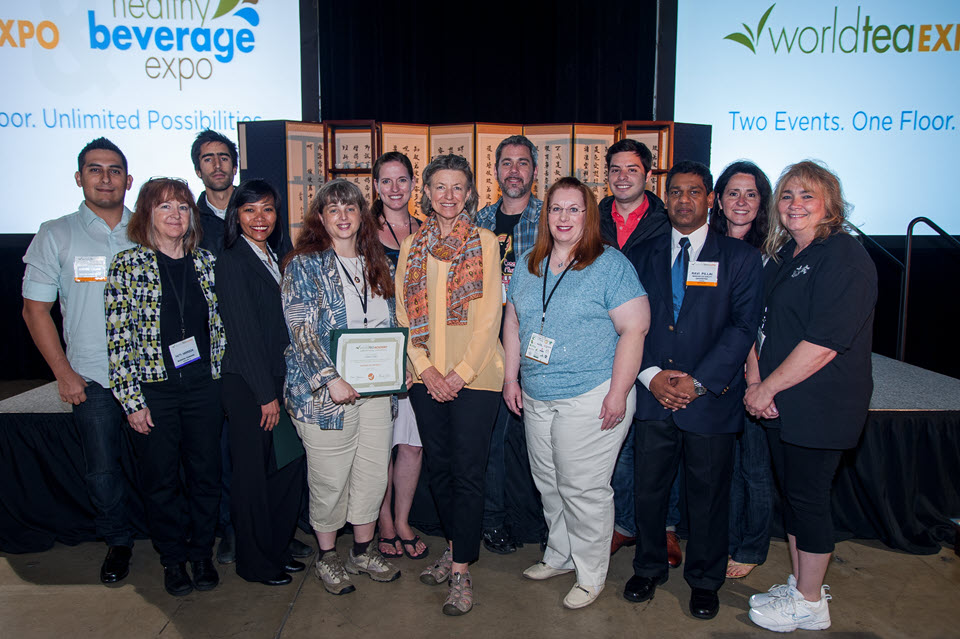
Dan: As we bring the interview to a close, will you share your personal Tea Journey?
Lisa: Well, I just love tea. I got into tea 23 years ago, and I will never stop. Every week, I grow and learn. And I encourage our students to do that, saying, Okay, so you got a certification, that’s great. But that doesn’t stop it’s an organoleptic experience. If you don’t use it, you lose it. You need to continue to grow and learn and keep up with trends.
So, loving the beverage definitely helps.
One of my most joyous experiences was to start off with a student in core one. And they struggled; they didn’t understand it. The words weren’t coming to them. And we worked with them, and we worked with them, then they go on and take advanced classes. And I’m like, wow, look at you.
I mean, it just brings me so much joy to watch them evolve into this to hear them say. I never thought I could have this tasting vocabulary. I never thought I would understand it to this level.
That is just so rewarding. It’s so rewarding. So, for me being the director of the World Tea Academy, the greatest joy is watching the students grow.
Download World Tea Academy Classes and Certifications
Tea For Me blogger Nicole Wilson describes her experience
World Tea Academy Class Deadlines
Class Registration runs June 27 through July 31. Sessions open August 7 through September 3. Students who enter the code: TWTA10 get a discounted rate.
Click to see the full year’s schedule of classes
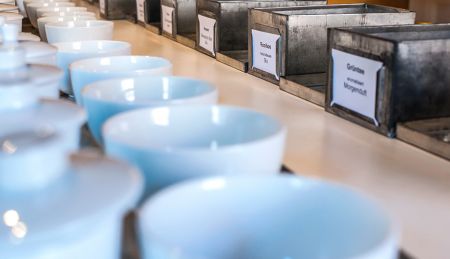
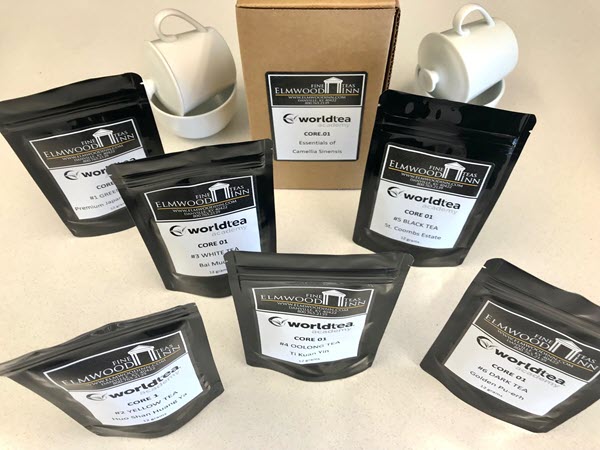
“There’s always a market for good quality tea education.”
– Lisa Boalt Richardson
- Lisa Boalt Richardson has traveled the globe extensively, researching and learning from masters about tea and specialty tea. Forming “Lisa Knows Tea” in 2000, Richardson has consulted with numerous companies and Fortune 500s – including Lipton-PepsiCo, Unilever, and Bigelow – to help them develop products and launch new tea lines. She’s also trained employees at major brands about tea knowledge and service. Overall, Richardson is a sought-out speaker, industry expert, and educator skilled in teaching professionals and the public. Richardson authored three books on tea. The most recent is Modern Tea: A Fresh Look at an Ancient Beverage (Chronicle Books 2014). She’s also been featured in media, including The New York Times, NPR, Food & Wine, Fox News, BrandWeek, National Geographic, Discovery, HGTV Magazine, Chowhound, Women’s Health, Real Simple, Shape, and World Tea News.
Click to share this post with your colleagues
Signup to receive Tea Biz weekly newsletter in your inbox.



